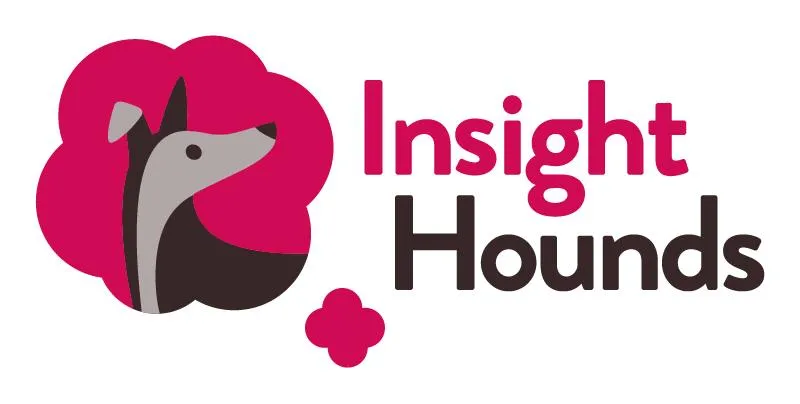Unlock the Secrets to Successful Sighthound and Greyhound Training!

Saying Goodbye
Saying Goodbye
Let's be honest; this is the topic nobody ever likes to talk about. As many of you know, we recently said goodbye to Oscar and some of the decisions we made at the time I didn't even know were options when we lost our first greyhound. I wanted to share some of our experiences in case it can help others.
With Oscar, we said goodbye at home—this was a first for us. Our wonderful vet, who had been through so much of Oscar's journey with us, came to our house, and we let him go in his favourite spot. Although extremely sad, this felt also quite comforting and peaceful. We then chose to take Oscar to the pet crematorium ourselves, which again was the first and I found comfort in doing so. If this is something you are considering, knowing which services are local to you could be beneficial.
There is a company called Dignity Pets, which offers at-home farewell services for your dog. Their website is also a valuable resource to explore; they are also able to help you understand when your dog is nearing the point where difficult decisions need to be made. They offer questionnaires that can be helpful if your dog is unwell, and if you think the time is coming obviously, always seek medical advice. I haven’t used these personally, but I have friends who have and said they were really impressed and comforted by them.
12 months ago we said goodbye to Belle. With Belle one morning, it was extremely clear she was very unwell, so we rushed her to our vets, left her there for investigations and within a short space of time, we had the call saying it was awful news. We got to say goodbye and were with her when she went.
We’ve also been in a situation where Josie, another of our greyhounds, collapsed while an inpatient at a specialist vet, and we couldn’t be there as she would have suffered and is unlikely to have survived while we travelled to her.
From some of those, I’ve learnt that having a rough plan in place has been very useful for us. For example plan A has been we would like them in the comfort of their own home. However if we had brought Belle home she would have suffered so we went with plan b (at the vets) and with Josie that wasn’t even an option so do you need to be adaptable and do what’s right for your dog.
Once you know it's happening, there are a lot of decisions.
You will be asked if you want to take your dog and leave them if they are at the vet's, if you would like an individual cremation, and what you would like to do with the ashes, whether you want them in a scatter tube or an urn.
Many of the decisions Jim and I have discussed way in advance of the situations arising with our dogs, such as whether we want them buried or cremated, whether we want to take them ourselves to the crematorium, and what we might do with the ashes. If it was an option, would we want them to be at home? Do we want our other dogs to see them during or afterwards? What do we want to do with the ashes?
I know it’s tough, but I would really recommend considering some of this in advance. If you get that news, you are likely to be in such a heightened emotional state that trying to figure this out can be extremely challenging.
Honestly, Jim and I have been on the same page about some of this; some of it we haven’t, and I am so grateful we had those discussions in advance. So when situations have arisen, particularly the ones with very little notice, we have both known the plan, and our focus has been on the dogs and supporting each other.
As for what comes after cremation, it's obviously a personal choice For us, we have made different decisions for the different personalities. We have Louis in a greyhound urn that perfectly reflects his spirit. (see image) We have scattered in favourite spots, we have scattered in the garden, and then planted a bush in memory of them. I know people who have had ashes made into jewellery to keep a loved one close or ornaments made. The decision is deeply personal, but having some consideration beforehand can ease the difficulty of making such choices during an emotional time.
We’ve been lucky to receive support from friends, family and particularly our dog friends and community afterwards. I also wanted to mention the Blue Cross; they offer bereavement services for you after the loss of your pets. It may be worth exploring the resources they provide, everyone handles things differently, but it’s important to know there is help out there for you, and you shouldn’t hesitate to reach out for help if you need to.
After losing your dog, some people start to think about welcoming a new family member into the home, and again, this can be difficult to think about. It's important to remember that no new pet can replace the one we have lost, but for some people, welcoming another into their lives helps with the grieving process. Others choose to wait a while, and some never take that step again; there is no right or wrong decision in this matter—it is entirely personal, and you should do what feels right for you.
The key message I wanted to share is that the process of saying goodbye to a cherished dog is a deeply emotional journey, it may not always go to plan, and you may need to be flexible, but having knowledge about available options can hopefully provide some comfort during a difficult time.
Join Our Blog Community for Expert Tips and Insights
Welcome to the Insight Hounds blog, your go-to source for all things Sighthound and Greyhound training and care. Whether you're a seasoned Sighthound lover or just starting your journey with these elegant companions, our blog is here to provide you with expert tips, in-depth insights, and practical advice. We are passionate about sharing their knowledge to help you build a stronger bond with your Sighthound and address any challenges you may encounter. Join our community of like-minded Sighthound lovers and stay up-to-date with the latest articles, training techniques, and heartwarming stories. Subscribe now and embark on a journey of discovery with Insight Hounds!
© Insight Hounds Dog Training 2024 - Privacy Policy | Terms and Conditions | Terms and Conditions of Service | Sitemap




